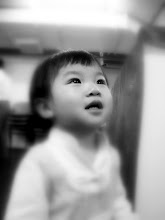During my off day recently, I took a morning to wash and clean up my new family car. It was a joy to do so, though washing the car alone was tiring. It was something new, and it was a sign of God’s providence to me and my family. Then, I remembered my motorbike, my Phantom Bike. I have not been riding on it for about a month, ever since I got the new car. So I went to try to start the engine of the bike, it didn’t work. One of the reasons why I like motorbike is that it has a simpler mechanism; when you can’t start a bike, you can push start it. So I tried to push-start or jump-start or run-start (whatever you call it) my bike. I changed its gear to first gear, and held on to the crutch and pushed it up and down the car park, hopefully to be able to get the engine started; but it didn’t work. I pushed and ran with the hundred-over-kilograms-motorbike for almost an hour, just to come to a realization that I couldn’t start the engine. It is not working this time.
My old Phantom Bike is not working. My new Hyundai Matrix is my new hope. This is my story of two modes of transportation, but in today’s meditation we have a story of two mountains: the mountain of the Old Covenant (Mount Sinai) and the mountain of the New Covenant (Mount Zion). I am impressed by how the author of Hebrews intentionally structured this passage with seven images for each mountain. Of course, the climax is at verse 24 when Jesus was being mentioned:
My old Phantom Bike is not working. My new Hyundai Matrix is my new hope. This is my story of two modes of transportation, but in today’s meditation we have a story of two mountains: the mountain of the Old Covenant (Mount Sinai) and the mountain of the New Covenant (Mount Zion). I am impressed by how the author of Hebrews intentionally structured this passage with seven images for each mountain. Of course, the climax is at verse 24 when Jesus was being mentioned:
The climax is reached with the reference to Jesus, seen here as "the mediator of a new covenant." The word for "new" (neas) is applied to the covenant only here. It refers to what is recent. The covenant involves "sprinkled blood" (cf. 9:19-22), which reminds us of the cost of the covenant. The idea of blood speaking is not common and there is undoubtedly a reference to Genesis 4:10 where Abel's blood cried from the ground for vengeance on his killer. Jesus' blood speaks "a better word" than that. His blood opens up a way into the holiest for people (10:19): Abel's blood sought to shut out the wicked man. (By Leon Morris)
As I continue my meditation, I realize that the description of the Mount Sinai is one with terror and fear; and the Mount Zion is one with hope and joy. My old Phantom Bike causes me to have muscle aching all over my body (imagine pushing a hundred-over-kilograms motorbike running up and down the car park for almost an hour); but looking at my clean Hyundai Matrix, I am satisfied.
Do you have religious experiences of the past causing you not able to move forward together with Christ now? I have. But I have also learned to look forward to the new mountain of faith and hope as I move on into new ministry. I am not too sure what some of your past religious experiences are or even traditions which have hindered you to move on, but there is always something new and better before you as you journey with Christ. There are always two mountains, one in front and the other one behind. Look to the one in front which is with new hope and joy, leave the one behind which is with terror and fear.
HHS…
Abel…

No comments:
Post a Comment